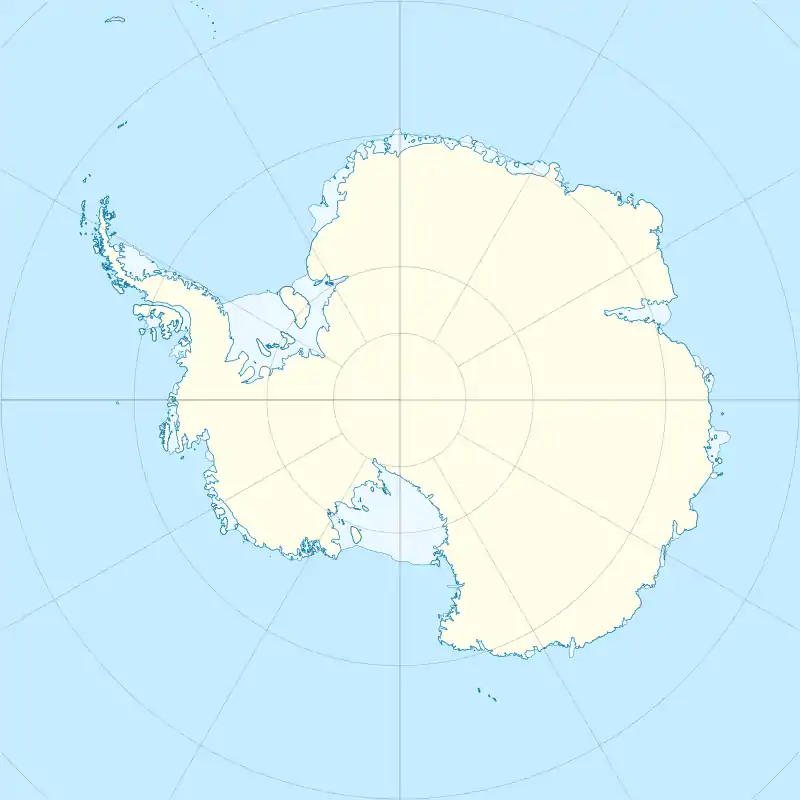Drygalski Island
Drygalski Island is an ice-capped island that is 20.4 kilometres (11 nmi) long and rises to 325 m (1,066 ft) in the Davis Sea of the Southern Ocean, about 85 km (53 mi) north of the coast of Queen Mary Land and 45 km (28 mi) north-northeast of Cape Filchner. The island has an area of 220 km2 (85 sq mi).
 Drygalski Island | |
| Geography | |
|---|---|
| Location | Antarctica |
| Coordinates | 65°45′S 92°30′E |
| Area | 220 km2 (85 sq mi) |
| Length | 20.4 km (12.68 mi) |
| Highest elevation | 325 m (1066 ft) |
| Administration | |
| Administered under the Antarctic Treaty System | |
| Demographics | |
| Population | Uninhabited |
Drygalski Island was first viewed from the continental Antarctic coast in November 1912 by members of the Western Base Party of the Australian Antarctic Expedition (1911-1914), and observed more closely from Sir Douglas Mawson's ship Aurora on the homeward journey in January 1914. Because Drygalski Island was thought to be "Drygalski's High Land", charted by Professor Erich von Drygalski of the German Antarctic Expedition (1901-1903) in 1902, Drygalski's name was given by Sir Douglas Mawson to the island.
A temporary field station named Mir was opened from 20 May to 6 August in 1960 on the island by the Soviet Union to study meteorological conditions.[1]
See also
References
- "SCLENTIFIC STATIONS IN ANTARCTICA 1882-1963" (PDF). New Delhi: Indian National Scientific Documentation Centre. 1971. Retrieved 18 May 2021.
![]() This article incorporates public domain material from "Drygalski Island". Geographic Names Information System. United States Geological Survey.
This article incorporates public domain material from "Drygalski Island". Geographic Names Information System. United States Geological Survey.